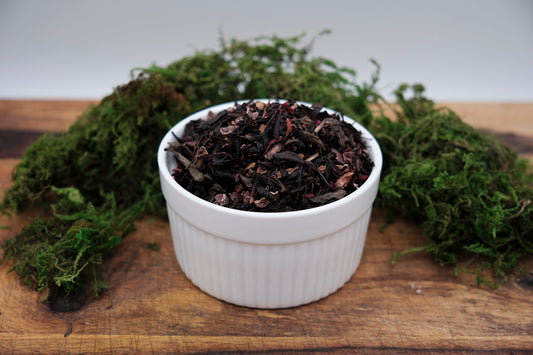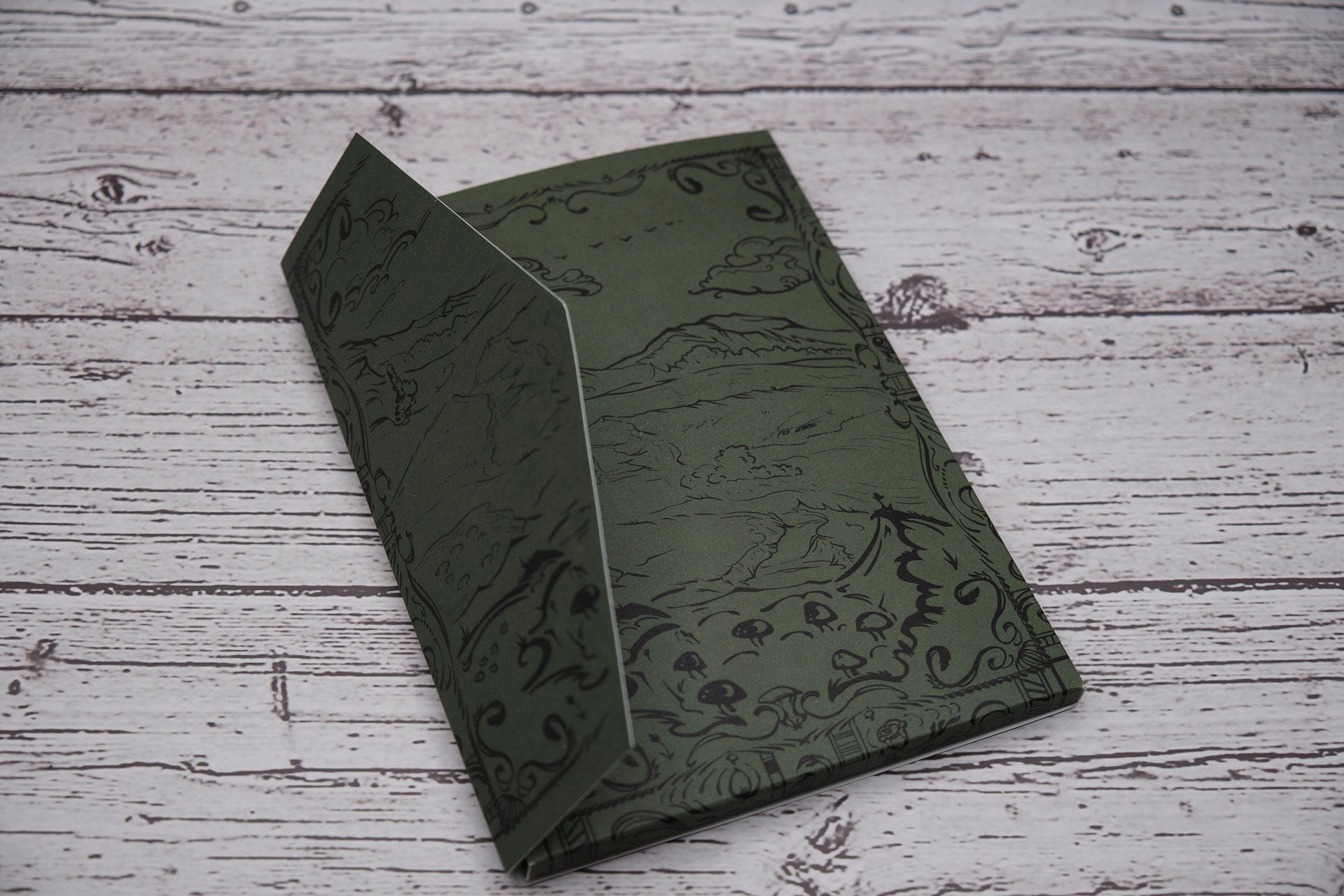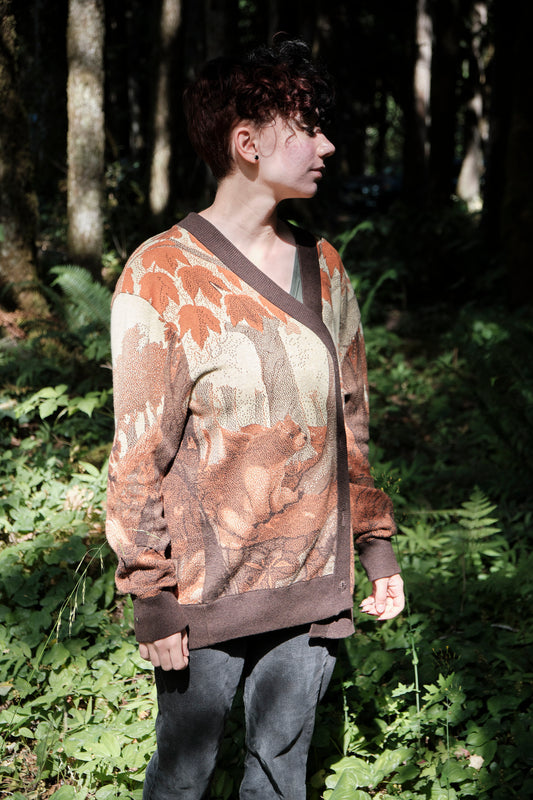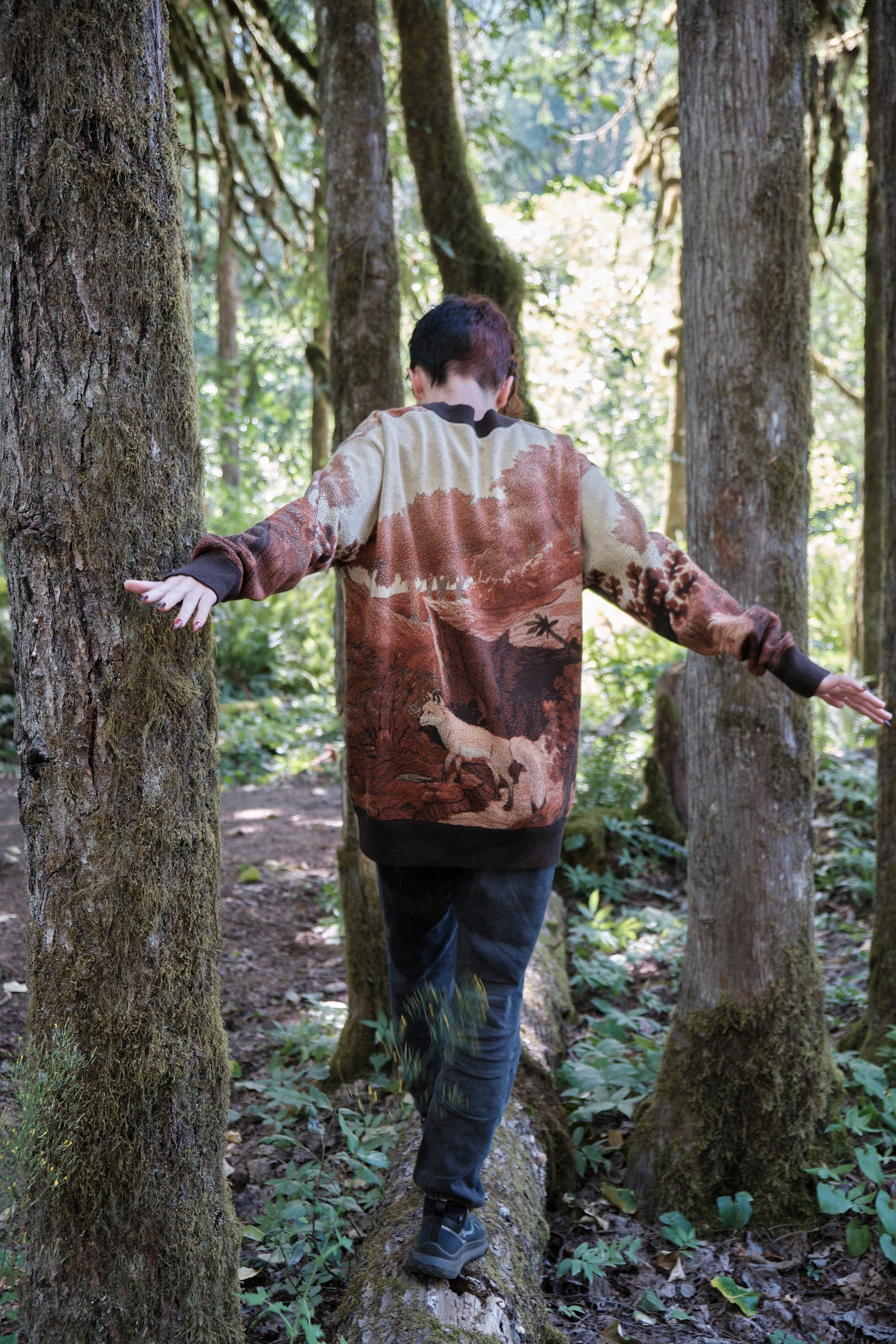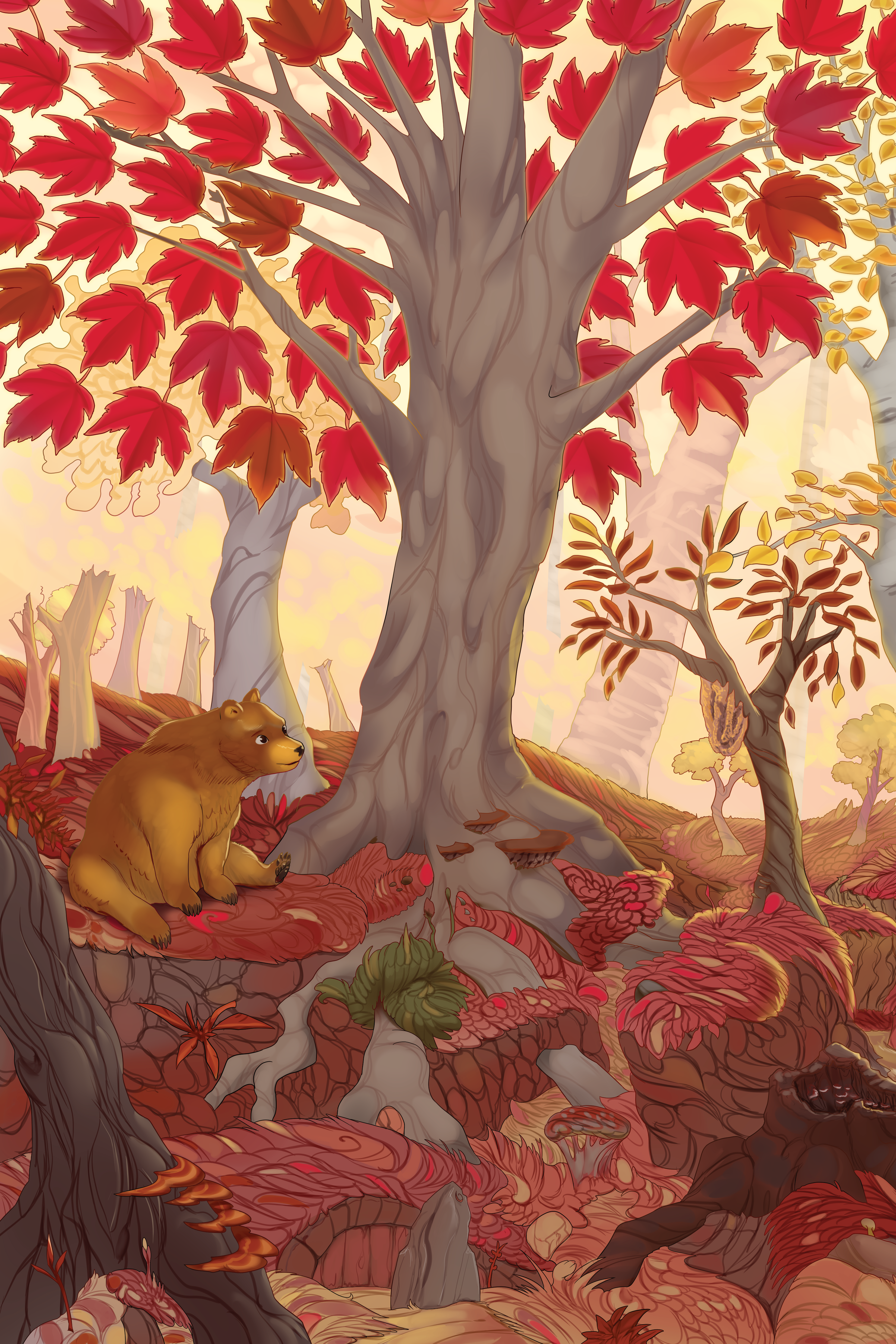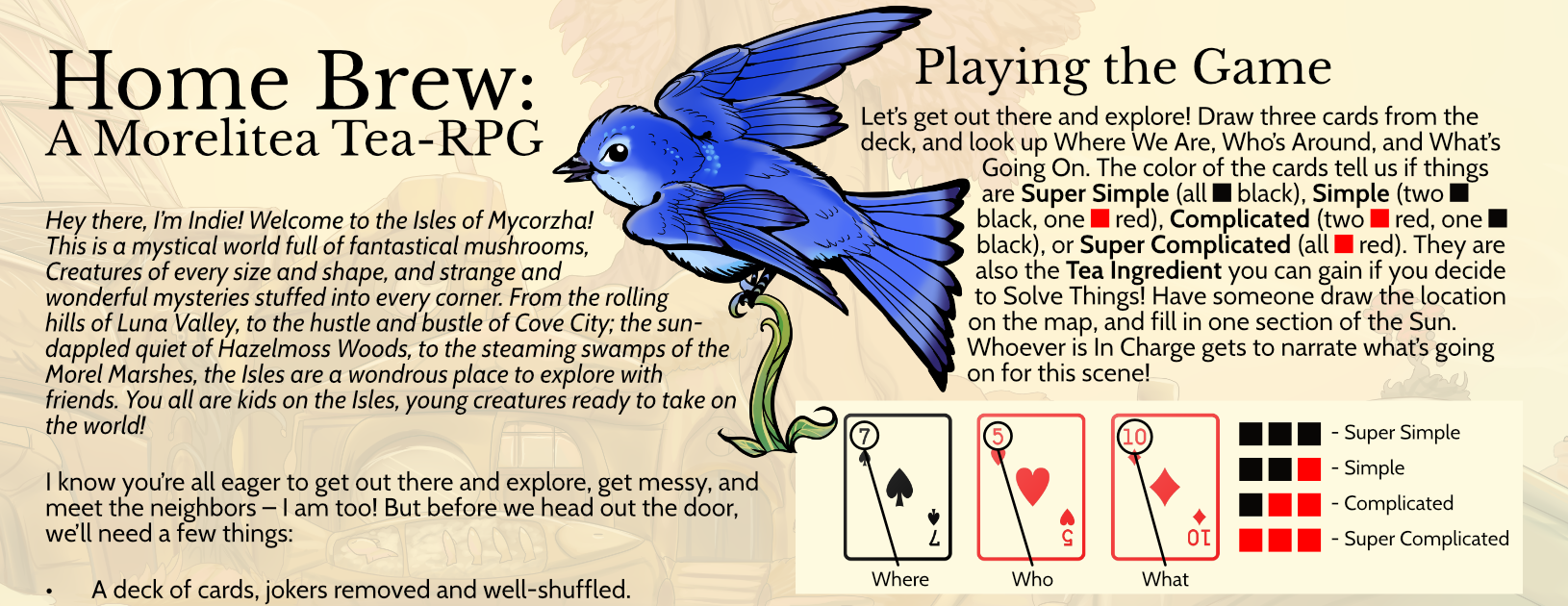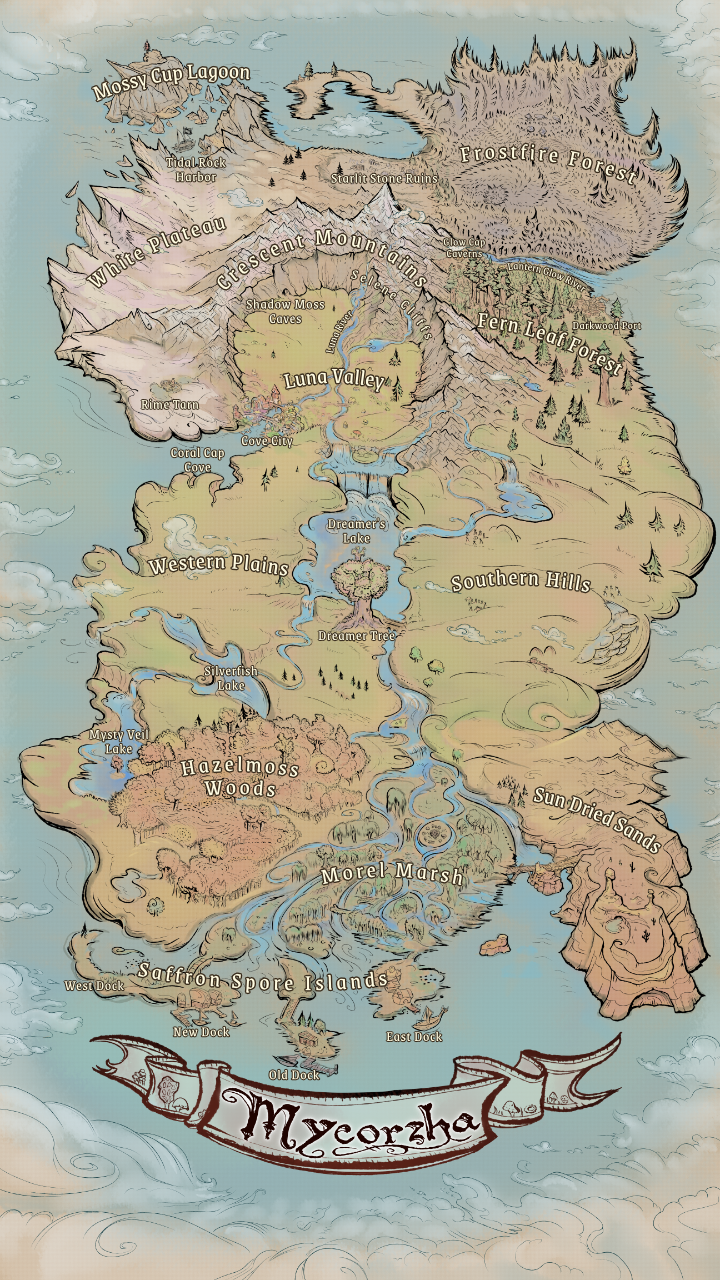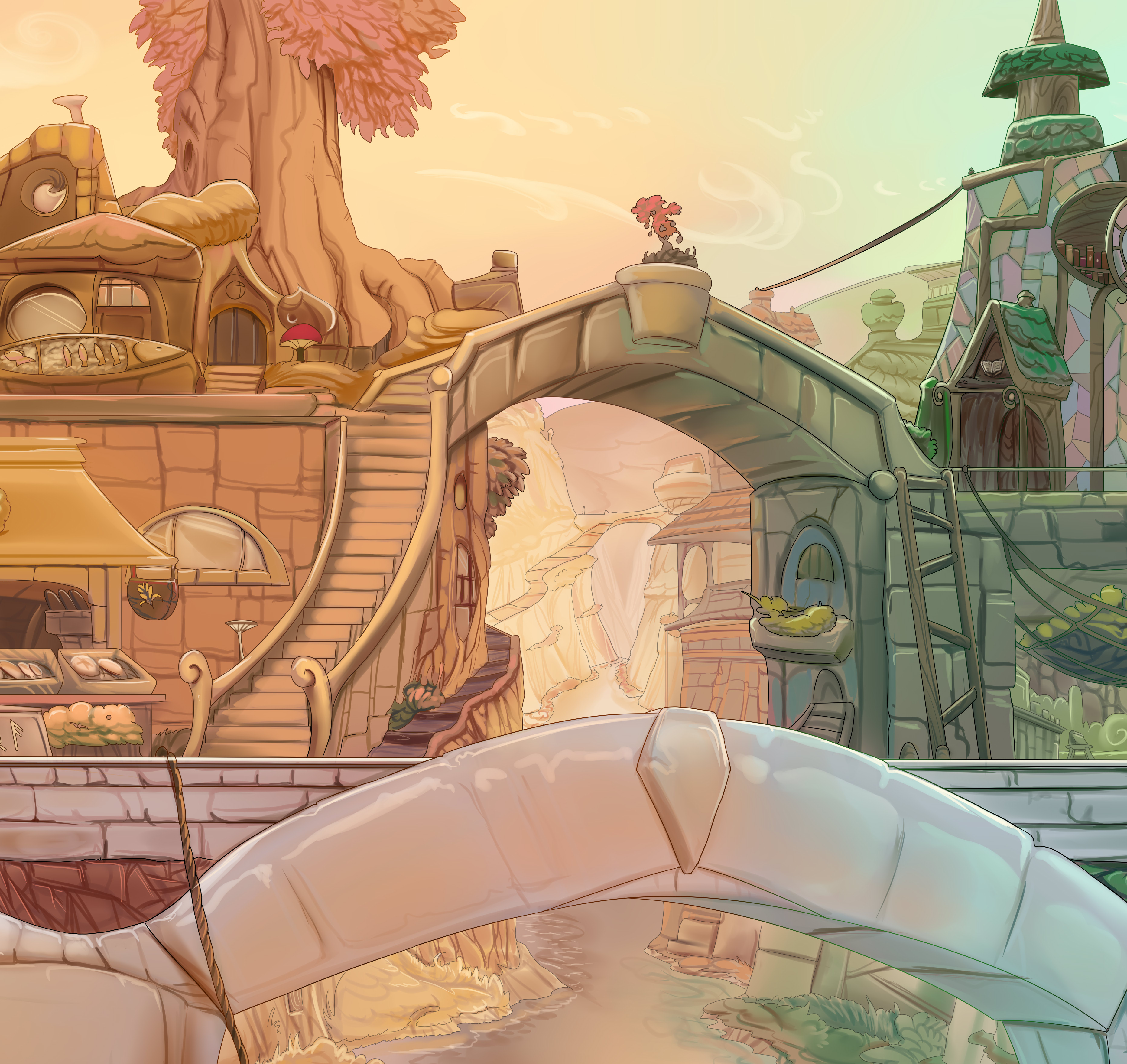|
The waters surrounding the Mycorzhan Isles are full of tales and secrets of their own, held by deepwater communities and coastal inlets. These sea-tales are known to few native Mycorzhans, but the bird clans are more widely traveled than most, and their gods and stories have mixed with the great heroes of the ocean folk to form a blending of sea and sky. |
Now I will tell of the legend of Chief Tamaroa, the great osprey king who traveled all the wide seas of the world, who was born on the wings of the water goddess Naida’s great storms and wrapped in thunderclouds to nurse as an infant at the breast of his mother, one of the great spirits of the sky. His first canoe was made from his own eggshell, and he paddled nearly to the horizon before his father could catch him, laughing, and carry him home with strong wingbeats. “Tamaroa, we shall name you,” his father said over the sound of the wind, “son of the world, for you are sure to see all of it.”
Young Tamaroa grew swiftly and proved his father’s words true, his rallying cry bringing together many ships and warriors. Setting out at the head of this great host, his youth was filled with mighty deeds to stir the hearts of the poets and song-singers. From mighty trees he fashioned his canoe, named Rising Sea Before the Squall, with masts and sails so large as to appear as a great cloud bank sweeping across the sea, a fleet of smaller boats in its wake. Nimmireth herself, it is said, was lured by curiosity to this strange roving storm. Tamaroa caught up her hand, and her winds fluttered through his head feathers as the two swirled and danced together. From then on a breeze would always seem to fill Tamaroa’s wings, and the sails of his many ships blazed white upon the horizon when he set upon his foes. In this way, Tamaroa’s legend grew, until one day he was called by his father, who was abed in his house beneath many-fronded trees.
“Father!” Tamaroa cried, embracing him in a hug, “you have called and I have come. You see the many sails of my fleets, the bright paint of my canoe which shines in many hues. You have heard the tales of my deeds, and so I ask of you, what would you have of me, your son?”
The aging chief looked his son up and down, then cast his gaze to the many boats pulled up along the shore. “It is true,” he said, “that you have done many great things, my son. You have truly seen many seas under many skies. But you have not yet lived your name, you are not yet the son of the world. Tell me, Tamaroa. What is the duty of a son?”
Tamaroa was taken aback, and stood in thoughtful silence at his father’s words. “To his parents and elders,” he said, “to see them comforted and cared for. And to his neighbors, to ease their way in the world.”
His father nodded. “Just so,” he said. “Tell me then, Tamaroa. How can you be the son of the world, if you have not seen the world comforted, and the many creatures in it eased on their way? I will be gone soon, and you will be chief, and this will be your duty to bear. A chief must think always of his people.”
At this Tamaroa ducked his face behind one wing, to show that he had understood his father’s reproach. He whistled to the wind, which filled his wings and sent him spiraling up, up up to the top of the tall peaks of the island where his father lay resting in his age. There he stayed for four nights beneath the burning arc of the sky, until his many warriors muttered beneath their breaths in fear and agitation. But then, with the sun blazing with summer’s heat Tamaroa at last descended, the white in his feathers glowing bright enough that many shaded their eyes. Before his whole assembled host he landed, and unfurled his great wings before them.
“I have had a vision from the southern winds of Arda himself,” he said to them all, “for I have thought long on the words of my father, the old chief! And beneath the height of the heavens, this I shall swear. To bring peace and prosperity to the wide world and the many creatures in it, such that all shall have their burdens eased, and their lives made better.” He stomped upon the ground, and a great bolt of lightning shot down from the heavens, blinding the host of sailors and warriors. As the glare faded, all beheld a gleaming sword, etched with flames and shining in the golden sun before Tamaroa. He grasped its hilt and raised it to point high into the heavens above the heads of his crews.
“We have been blessed by Arda! We shall bring peace and order to the whole world!” And so he leapt to the prow of his canoe, and led his host out onto the sea. And they spread to many islands, and we still sing tales to this day of the mighty deeds of Chief Tamaroa.
But soon the lands and the shores were known to mighty Tamaroa, and his gaze turned then towards the sea. And he gathered his advisers and those chiefs loyal to him, and when they had come together he sat a while in silence, brooding. “I have done as my father told me,” he said to them, “but if I am to be the son of the whole world, then the whole world must be embraced by my labors. All its peoples now look to me, but what of the spirits, the elements? What of the sea and sky themselves? Are these not things of the world? No, I say, I am their son as well. They too shall be at peace, and I will bring them into my care!”
Tamaroa’s words were heard with by all present in his lodge beside the sea, but also they were heard by a humble hermit crab, who scuttled quickly away to whisper the words to the crashing waves. Deep below the currents woke, and a mighty presence rose from the depths. At its approach the waters of the ocean frothed and raged, until Tamaroa’s fleet was scattered as sandpipers before an onrushing wave. Breaching then came Ika-to, the Great Fish, and he called out above the rush of the waves. “Chief of the land, oh Tamaroa, who claims to be the son of the world! In your pride you would seek to tame all things, but you cannot bring peace to the sea! The ocean is vast and deep, and it will drown you!”
“This we shall see, mighty one!” cried Tamaroa. He went forth from his lodge and whistled up the southern wind to fill the sails of his canoe, and drew his sword such that its light danced upon the crests of the waves like fire. Ika-to dove, and the sea churned around the boat, but Tamaroa clung fast to the lines, and his hand on the rudder was iron against the current’s pull. Then he swung his sword, and the waves were sliced apart before the might of the Chief. “Arda, lend me your strength!” he cried aloud, but the heavens grew silent and still, and Tamaroa knew even the gods watched and held their breath.
Then did Ika-to fall upon him like a typhoon, his great fin knocking the Rising Sea Before the Squall aside like a chip of wood upon the waters. And Tamaroa answered with a great screech and the swing of his sword, which rang against Ika-to’s scales with the clash of a hundred bells. “Give up, small chief!” said the fish, grinning beneath the waves. “For my hide is like a mighty wall, and you cannot harm me!”
“You are mighty indeed, great one, but the might of the gods can pierce any wall!” replied Tamaroa, and up into the sky he soared, and then came down in blazing thunder against Ika’to’s side once more. The fish roared in pain as the blow struck true, and a single gleaming scale sank tinkling into the depths.
“A great and telling blow!” he said, and dove down, down, down into the dark water. Tamaroa settled once more upon his canoe, looking all around at the frothing sea. All was quiet and still, like the wind before a storm. And then a great sound echoed from the deep, a great groaning from the roots of the world. Up came Ika-to, and before him was raised a wall of water so vast the sky shrank against it. Seeing death in the rushing wave, Tamaroa launched himself to chase that speck of sky, his mighty wings beating as below his boat was drowned beneath the waters. Up up up went Tamaroa, and up up up followed Ika-to, the two racing up the face of the great wave like light and shadow, until Tamaroa just skimmed its frothing top as it passed beneath him. But cunning Ika-to lunged as he was carried passed, and in his teeth were caught two of Tamaroa’s great tail feathers.
Down they plunged, and the wave shattered the sea and all before it. Tamaroa and Ika-to, the chief and the fish, fell then like rain from the heavens, and Tamaroa's laugh echoed across the sky and water until both plunged into the sea. The world held its breath, until Tamaroa shot once again from the waves, and the great bulk of Ika-to surfaced behind as he took wing.
“Oh, great fish Ika-to! You have proven yourself mighty indeed, and though I would continue to fight, I must think of my people, who would be washed away.” Tamaroa’s feathers gleamed in the light of the sun as he regarded the sea. “Though I am the chief of chiefs and the son of the world, still I would see wisdom taught to me by the land and the spirits. The waves cannot be brought to peace, for they are forever changeable.”
Ika-to slapped the waves in agreement, and nodded. “So it is, great Chief. But in your deeds you have shown the wisdom of the creatures of the land and skies, that they must be kept safe and comforted from the might of the waves and storms of Naida, and to learn the ways of the earth. Thus is balance kept between us.”
“Let us work as one, then!” declared Tamaroa, and he held forth the gleaming sword of Arda. “Take this mighty gift, Ika-to, and let there be no more quarrel between us.” And he fastened the sword to Ika-to’s nose, and laughed once more to the sky. “Champions and chiefs of land and sea!”
And such was the way of the battle and agreement between osprey and swordfish, the great chief of the sky and the guardian of the seas, that all creatures might work to bring balance to the world.
---
Gods of the Sea and Sky
The deities mentioned in the story are known across coast and shore, spread by the bird clans of Mycorzha as they have told the stories of their pantheon through the ages.
Naida - The goddess of water, of storm and sea and river. Commonly portrayed as a cormorant.
Nimmireth - The goddess of the West Wind, known for her mirth and companionship. Commonly portrayed as a blue bird.
Arda - The god of the South Wind, known for his steadfastness and overwhelming nature. Commonly portrayed as a green heron.
